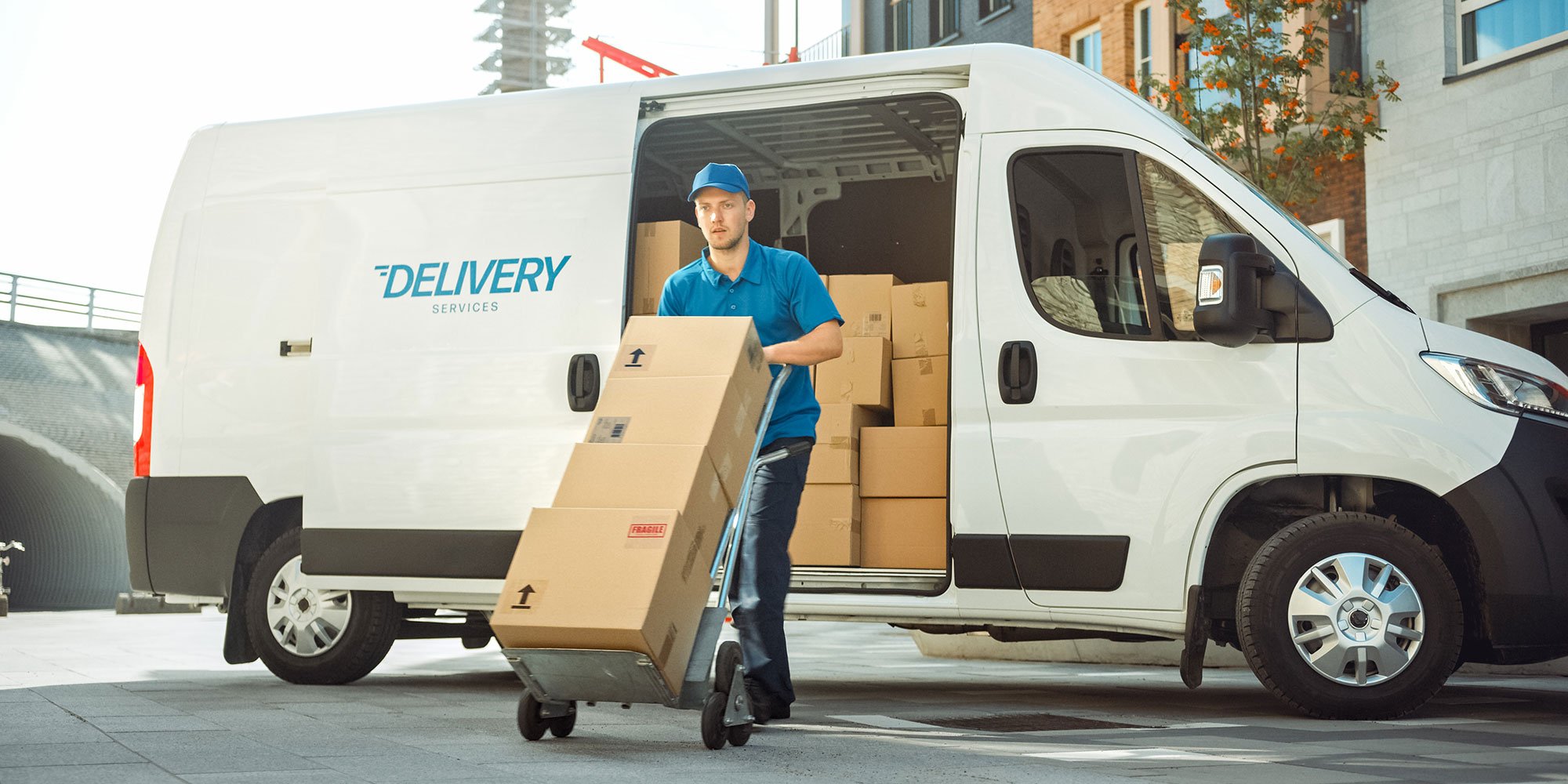
Transportation Business Financing: Everything a Small Business Owner Needs to Know
The trucking industry is booming, but will your company’s growth be too much for you? New hires and equipment upgrades can help fuel the flames of success in this rapidly advancing economic climate. Just make sure that any improvements won’t break your bank account!
You can secure your finances through trucking business loans. With the help of these loans, you can cover your most essential expenses like operational costs and even plan for long-term expansion. As a trucking company owner, it’s crucial to acknowledge the changing landscape in the trucking industry and position your business to appeal to such consumers. But to reduce your costs and keep up with market demands, you need to ensure you’re running your operations smoothly and have no significant debts.
This article will discuss what type of trucking business loans are available and how they can contribute to your company’s growth. Read on to find out more!
What Are Trucking Business Loans?
Trucking business loans are pretty much what they sound like — loans specifically for trucking companies. They can range from a few thousand dollars to hundreds of thousands.
These loans can be used for many business expenses, including:
- Salaries, wages, and benefits for drivers
- Fuel, fuel taxes, and tolls
- Parts and truck/trailer maintenance
- Advertising
- Obtaining requirement licenses and permits
- Facilities or equipment leases
Some lenders will structure their loans as either short-term (less than five years) or long-term (more than five years).
7 Best Loan Options for Trucking Businesses
When choosing the most suitable trucking business loan, you need to consider the different features of each loan option. Some loans are difficult to attain since they require high credit scores. Others have more flexible requirements and can be secured after a week or two.
We've compiled a list of the seven best loan options to help make your decision easier:
1. Small Business Loans (SBA)
The Small Business Administration or SBA includes programs that provide funding for trucking companies. SBA loans open new financing opportunities for small businesses that don’t qualify for conventional business loans, such as traditional bank loans. SBA loan funds are flexible, and a trucking business can use them to buy equipment, expand their business, or use them as working capital for operating expenses.
Some SBA loan options to consider include:
SBA 7(a) Loans
With a 7(a) loan, you can receive up to $5 million and use it for almost any business purpose, including equipment or machinery, real estate or land purchases, or even business acquisition.
SBA Microloans
If you run a minor trucking operation or you’re an owner-operator who requires $50,000 or less, the SBA microloans program can be a suitable option for you. Because the average loan distributed through this program is $13,000, a trucking business can use these funds to purchase machinery or equipment, working capital, or supplies.
Veterans Advantage Loans
Veteran Advantage Loans offer the same rates and terms as 7(a) loans and are meant for service members and veterans. They tend to offer reduced guarantee fees compared to other loans.
2. Equipment Financing
Equipment financing is used to purchase equipment. In the trucking industry, this means the purchase of a new or used truck, a trailer, or other long-term physical assets that are essential for operations.
This type of funding allows you to cut down the cost of expensive equipment into smaller payments that are easier to manage. There are two types of equipment financing:
Equipment Loans
With this loan, you’ll make scheduled payments that go toward your principal balance and interest. Once you fulfill all your payments, you will own the equipment. If you want to keep your equipment for the long term, this is the best option for you.
Equipment Leases
When you lease equipment, you’re renting from the lender. You make payments each month to use the equipment. Once your lease is over, you return the equipment and upgrade to the latest model.
In some cases, you can pay the remaining balance if you’d like to own the equipment outright. With leases, monthly payments are more affordable, and it’s even possible to find leases that don’t require a down payment.
Keep in mind that the total cost of the lease generally winds up being more expensive than loans due to higher interest rates.
3. Medium-Term Installment Loans
A medium-term installment loan is paid off for typically one to five years. These short-term loans are a great way to get cash when you need it most! With an installment loan, your business can break down the cost of purchasing new equipment or receive working capital while repaying low monthly payments.
The best part? These kinds of financing work for any purpose. Trucking business owners who want more funds to expand their company’s reach across states will find this type of loan to be a perfect solution.
4. Business Lines of Credit
A business line of credit functions like a business credit card, where a borrower can make multiple draws from their account as much they need. The lender sets the limit on the borrowed amount.
With a line of credit, you only pay interest and fees on your borrowed amount. For instance, if you have a total credit line of $100,000 but have only spent $40,000, you’ll only pay interest or fees on the $40,000.
Like medium installments, you can use a line of credit for any business expense, including unexpected emergencies, covering operational costs, or purchasing equipment.
5. Short-Term Business Loans
Short-term business loans are paid back over a brief period that will not exceed one year. These loans are one of the most expensive forms of credit, so it’s best to use these loans when necessary. Generally, these loans are used to fund emergency expenses such as equipment breakdown or fuel costs.
Borrowers that have not been in the industry too long or have low credit scores may not have other options than to seek a short-term loan. In such a case, they should calculate the return on investment to determine if the loan is worth it or not.
6. Business Credit Cards
The best way to get back on track after an emergency arises is with a business credit card. You can use these cards when you need extra funds and enjoy rewards programs that will help your score improve over time, too!
A business credit card is an excellent choice for trucking companies because you can still draw cash on your account even if it’s maxed out. It can also be easy to obtain, as most cards only check your company’s ability to pay and not your personal credit score. However, since the loan amount isn’t guaranteed, there is a higher chance of rejection, and the interest rates might be slightly higher than other options.
7. Invoice Factoring
Invoice factoring allows businesses to utilize their accounts receivables (goods sold but not yet paid for) as collateral for a short-term loan. The lender purchases your invoices, and you receive immediate cash flow. However, you’re selling your accounts receivable to the lender at a discounted rate. So if customers don’t pay their bills or take a long time to settle, then you’ll end up with less cash than expected.
Factoring is best when you have a high-risk client base and need immediate cash flow without having to wait for payment. It also has a lower credit score, annual revenue, and time in business requirements, making it easy to qualify if you have eligible invoices.
Keep in mind that many factoring companies require your accounts receivable to be at least 90 days old before they will purchase them.
How Can You Improve Your Chances of Getting a Business Financing?
If you haven’t been in the business for more than 10 years, you might have doubts about securing a loan. Don’t fret; check out three ways you can improve your chances of getting a trucking business loan:
1. Have Good Credit
Having a high credit score is essential to increase your chances of getting a loan. Typically, you’ll need an average score higher than 650 to be considered for most loans. Plus, you’ll have the best chance of being approved if you have been in business for at least two years and have at least two years of tax returns.
However, having a lower credit score doesn’t mean you can’t get a loan at all. If you have been in business for one to two years and have been profitable, then there are still some lenders that may give you a chance with a trucking business loan, even if your credit score is below 650.
2. Use Your Line of Credit Responsibly
It’s best to aim to use around 30% of your line of credit. For instance, with a credit line of $7,000, you should try to use about $2,000 so that you can keep your credit history in good standing.
3. Increase Your Revenues
When lenders see that your revenue is low, they may hesitate and second-guess whether you’ll be able to repay the borrowed amount. If you want to apply to larger loans and have a weak revenue, you can start:
- Reducing unnecessary spending, like additional fuel costs, as much as possible. Try to control how much your drivers use fuel per day. For example, you can use GPS tracking to ensure that drivers are not using long routes or high-traffic roads to reach their destinations.
- Ensuring that unpaid bills like unpaid invoices are taken care of (Ex: invoice factoring)
- Finding a method to boost your cash flow when times get rough (Ex: fast financing options like a business credit card)
Choosing Select Funding for Trucking Loans
There are many options when looking for trucking business loans. In the end, the best choice depends on how you intend to use your funds and what your credit profile looks like.
- If you need working capital fast, your best bet is a short-term loan or small business line of credit.
- If you can afford to wait and have decent or higher credit, an SBA loan can be your best option.
- A credit card will work well for fuel purchases and minor operational expenses.
Our lending experts at Select Funding are available to provide you with fast solutions to your financing problems and help you get approved in a short period compared to traditional loans.




